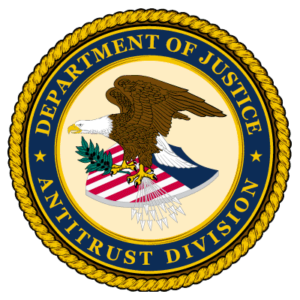Editor’s note: Late yesterday Visa issued the following statement in response to the US DOJ lawsuit:
“Visa strongly disagrees with the Department of Justice (DOJ), whose attempt to block Visa’s acquisition of Plaid is legally flawed and contradicted by the facts. This action reflects a lack of understanding of Plaid’s business and the highly competitive payments landscape in which Visa operates. The combination of Visa and Plaid will deliver substantial benefits for consumers seeking accessto a broader rangeof financial-related services, and Visa intends to defend the transaction vigorously.
As we explained to the DOJ, Plaid is not a payments company. Visa’s business faces intense competition from a variety of players – but Plaid is not one of them. Plaid is a data network that enables individuals to connect their financial accounts to the apps and services they use to manage their financial lives, and its capabilities complement Visa’s. Together, Visa and Plaid will deliver better digital experiences and more choice for consumers in managing their money and financial data. Visa is confident that this transaction is good for consumers and good for competition.”
“Visa Statement on Planned Acquisition of Plaid“, Business Wire, Nov 5, 2020, https://www.businesswire.com/news/home/20201105005804/en/Visa-Statement-Planned-Acquisition-Plaid
The US Department of Justice (DOJ) filed an antitrust lawsuit meant to challenge and block Visa’s planned $5.3 billion acquisition of fintech startup Plaid.

Plaid helps consumers securely connect their financial accounts to thousands of apps and services such as Acorns, Betterment, Chime, Transferwise, and Venmo which help them manage their financial affairs easily and efficiently.
In its January 2020 announcement of the acquisition, Visa said one in four people with a US bank account have used Plaid to connect to more than 2,600 fintech developers across more than 11,000 financial institutions.
“We are extremely excited about our acquisition of Plaid and how it enhances the growth trajectory of our business,” said Al Kelly, CEO and chairman of Visa in its original January news release. “Plaid is a leader in the fast-growing fintech world with best-in-class capabilities and talent. The acquisition, combined with our many fintech efforts already underway, will position Visa to deliver even more value for developers, financial institutions, and consumers.”
DOJ makes its case
While approval of the acquisition by regulators is required, the DOJ also feels the deal could have a negative impact on consumers as well as small business.

“Visa is a monopolist in online debit transactions, extracting billions of dollars in fees annually from merchants and consumers. Plaid, a financial technology firm with access to important financial data from over 11,000 US banks, is a threat to this monopoly: it has been developing an innovative new solution that would be a substitute for Visa’s online debit services. By acquiring Plaid, Visa would eliminate a nascent competitive threat that would likely result in substantial savings and more innovative online debit services for merchants and consumers,” DOJ’s Antitrust Division claimed in its lawsuit filed today (Nov 5).
The suit also alleges that Visa and Its consultants Bain & Co withheld important documents DOJ requested. It goes on to say that Bain’s “unsupported claims of privilege over the documents” have stymied the Antitrust Division’s investigation.
In an earlier earnings call, Visa CEO Kelly said, “In terms of Plaid, I want to say two things. First, we continue to engage with the Department of Justice on the review of the acquisition. Second, the Department of Justice’s lawsuit yesterday against Visa and Bain & Co is related to a dispute over documents they requested as part of the review of the deal. Beyond that, we’re not going to comment further.”
The DOJ lawsuit further says “Visa seeks to buy Plaid – as its CEO said – as an “insurance policy” to neutralize a “threat to our important US debit business.” Not exactly music to a regulator’s ears.

In recent years, online transactions have experienced “explosive” growth, accelerated by the pandemic, with online sales growing more than 30% between the first and second quarters of 2020 the suit said.
The DOJ said Visa controls 70% of online debit transactions in the US, processing more than 43 billion debit transactions in 2019 as well as 10 billion online transactions. It also noted that MasterCard has a much smaller market share of 25% and its competitive presence has not reduced the growing costs of services to merchants and the monopoly enjoyed by Visa.
Visa acquired Plaid to minimize potential threat to its debit business
“These entry barriers, coupled with Visa’s long-term, restrictive contracts with banks, are nearly insurmountable, meaning Visa rarely faces any significant threats to its online debit monopoly. Plaid is such a threat,” the DOJ asserts.
The acquisition was made to eliminate an existential risk even at “an unprecedented revenue multiple of over 50X.”
“In making the case to buy Plaid to Visa’s Board of Directors, Visa’s senior leadership estimated a “potential downside risk of $300-500M in our US debit business” by 2024 should Plaid fall into the hands of a rival. Visa understood that could create an “[e]xistential risk to our U.S. debit business” and that “Visa may be forced to accept lower margins or not have a competitive offering.”
In summarizing its case against the acquisition, DOJ says both merchants and consumers would be deprived of competition that would drastically lower costs for online debit transactions, leaving them with few alternatives to Visa’s monopoly prices.

Plaid is headquartered in San Francisco and operates the leading financial data aggregation platform in the US with revenues of nearly $100 million in 2019.
All this right in the middle of a contentious US election, government regulatory concerns about monopolies and privacy concerns about big technology companies, and a COVID-19 crisis changing the way people buy and pay for goods. The odds of this acquisition going forward do not look rosy.
A massive change in the payments industry is just one part of a perfect storm of huge proportions impacting every aspect of society, business, and government in the US around the world.








LET’S CONNECT